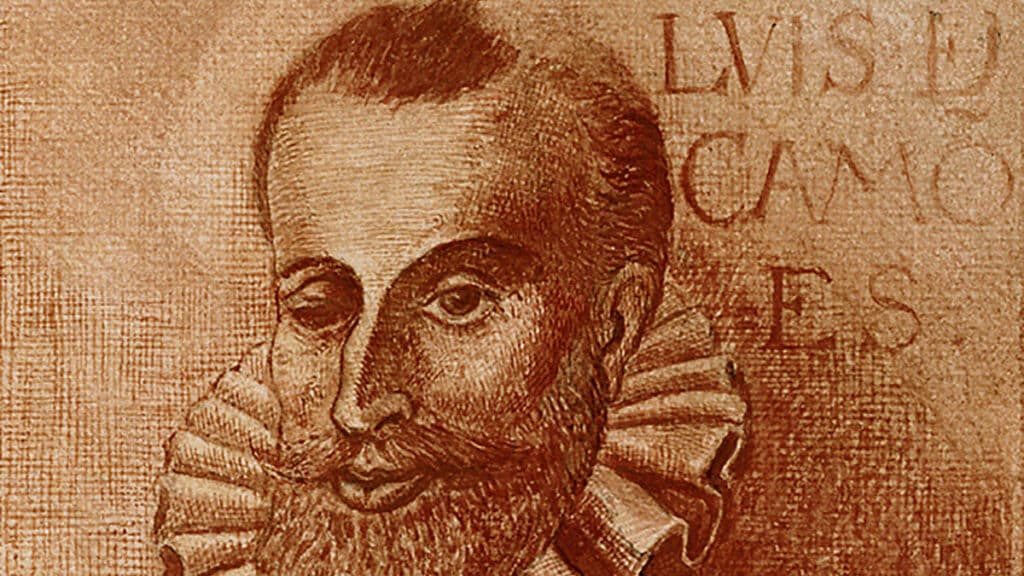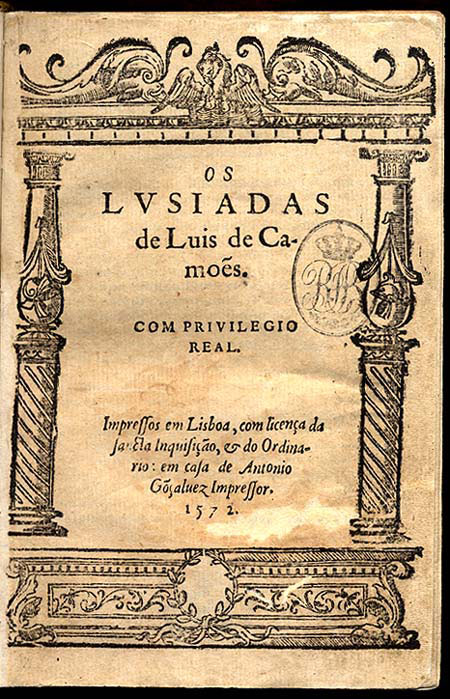Luís Vaz de Camões was a Portuguese adventurer who became Portugal’s national poet.

Luís de Camões wrote Os Lusíadas (The Lusiads)

De Camões (c. 1524 – 1580) traveled all the way from Portugal to China and back. This was in the time when ships were not much bigger than speedboats are today.
De Camões wrote Portugal’s national epic poem Os Lusíadas in 1572. It’s about the opening of the sea route to India by the great Portuguese explorer Vasco de Gama in the 15th century (1497 – 1499).
Canto 1
As armas e os barões assinalados,
Que da ocidental praia Lusitana,
Por mares nunca de antes navegados,
Passaram ainda além da Taprobana,
Em perigos e guerras esforçados,
Mais do que prometia a força humana,
E entre gente remota edificaram
Novo Reino, que tanto sublimaram;
Canto 1
Arms and the Heroes, who from Lisbon’s shore,
Through Seas where sail was never spread before,
Beyond where Ceylon lifts her spicy breast,
And waves her woods above the watery waste,
With prowess more than human forced their way
To the fair kingdoms of the rising day:
What wars they waged, what seas, what dangers past,
What glorious empire crowned their toils at last
This translation was made by William Julius Mickle in 1776.
Vasco de Gama’s journey launched the Portuguese Empire and the European Age of Discovery. De Camões wrote the poem while in exile on the Chinese island of Macau. Portuguese is still spoken there.
Os Lusíadas is often compared to Homer’s Iliad and Odyssey, or Virgil’s Aeneid. That is some serious literature.
Portugal’s national day, Portugal Day, commemorates de Camões’ death on June 10, 1580. “As armas e os barões assinalados…”
